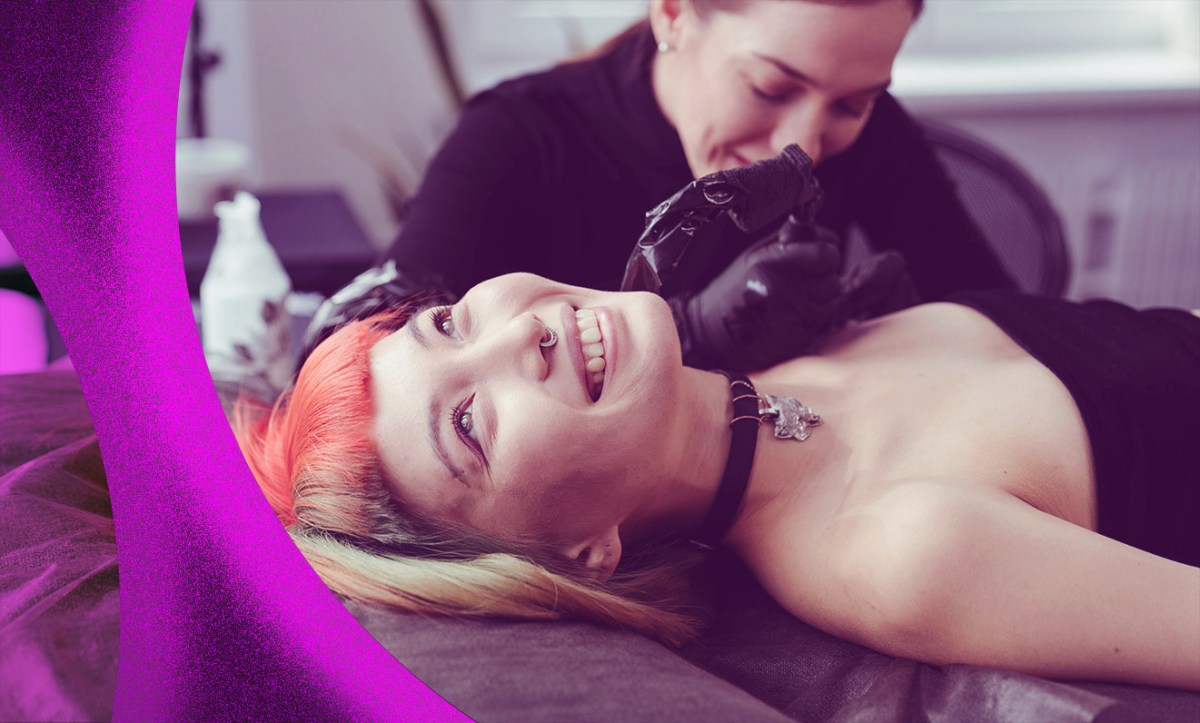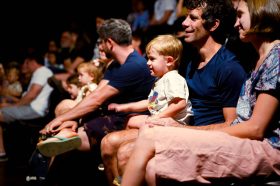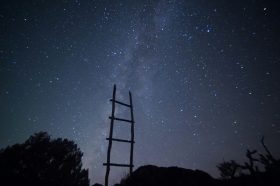In this FREE journey to creative recovery, we’re following Julia Cameron’s bestselling creativity self-help manual, The Artist’s Way, tracing the book’s 12-week program with a series of inspiring ArtsHub articles, resources and ideas for artist-date activities. There’s also a Facebook community group you can join for discussion and support.
To recap, the idea with The Artist’s Way is to commit yourself to a structured creative recovery that will spark joy, remove blocks and build the confidence to play and take risks – whether you’re a professional artist or not. The main tools of the course are Morning Pages and Artist Dates. You can read previous articles here:
- Introduction: an invitation to change your life
- Week 1: Recovering a sense of safety
- Week 2: Recovering a sense of identity
- Week 3: Recovering a sense of power
- Week 4: Recovering a sense of integrity
- Week 5: Recovering a sense of possibility
- Week 6: Recovering a sense of abundance
- Week 7: Recovering a sense of connection
- Week 8: Recovering a sense of strength
Or you can jump right in and follow along, wherever you are in the process. Grab a copy of the book, start reading and look out for ArtsHub’s weekly articles, published each Monday.
Keep up to date with The Artist’s Way series here
Week 9: Recovering a sense of compassion
Are you a good friend to yourself, or are you a total bitch?
One of the things I’ve noticed lately, is how hard I am on myself. I’ve been eavesdropping, thanks to The Artist’s Way, on that little voice that drones away in the background, telling me I’m lazy, slow and unproductive. On a really bad day, this critic reminds me of previous failures of courage, intellect and taste. She says, with lofty contempt: ‘You’re not good enough. Try harder. Be better.’
Not exactly compassionate, and not entirely accurate. Lazy, slow and unproductive, compared to who? Cowardly? Sometimes, but not generally. I try to face my fears and I keep showing up.
This week, Julia Cameron says that one of the most important tasks in artistic recovery is to learn to call things, especially emotions and behaviours, by their right names.
‘Most of us have spent years using the wrong names for our behaviours,’ she says. ‘We have wanted to create and we have been unable to create and we have called that inability laziness. This is not merely inaccurate. It is cruel.’
Fear
Being blocked and being unable to start are more likely caused by fear than laziness, says Cameron, and if we’re dealing with fear, the antidote is support, encouragement and playfulness, not harsh discipline. Stop yelling at yourself, she says, and try some love.
‘Do not call procrastination, laziness. Call it fear.’
As children, many of us felt our parents’ fears for us around artistic aspirations and knew that by choosing a creative life rather than a safe or predictable one, we were worrying or disappointing them. The unspoken directive we absorbed was often something like: ‘If you’re going to be an artist, make sure you’re a great one.’
No pressure!
No wonder so many of us feel blocked about starting a first draft or a sketch. We’re paralysed by the fear of making bad art. Instead of leaning into the beginner’s enthusiasm, inspiration and lighthearted “have a go, make a mess” attitude – an attitude so necessary for the early stages of creation – we often freeze up.
Instead of taking some small steps towards a creative goal, it often feels easier to do something like clean out the fridge, start a fight with our partner or create some distracting drama in our friend group. I’ve noticed this urge in myself. So often I’m sitting in front of the blank page, feeling anxious, and the temptation arises to do something else: like housework, scrolling social media or sending a gossipy or complaining text message.
Supportive rituals for beginning
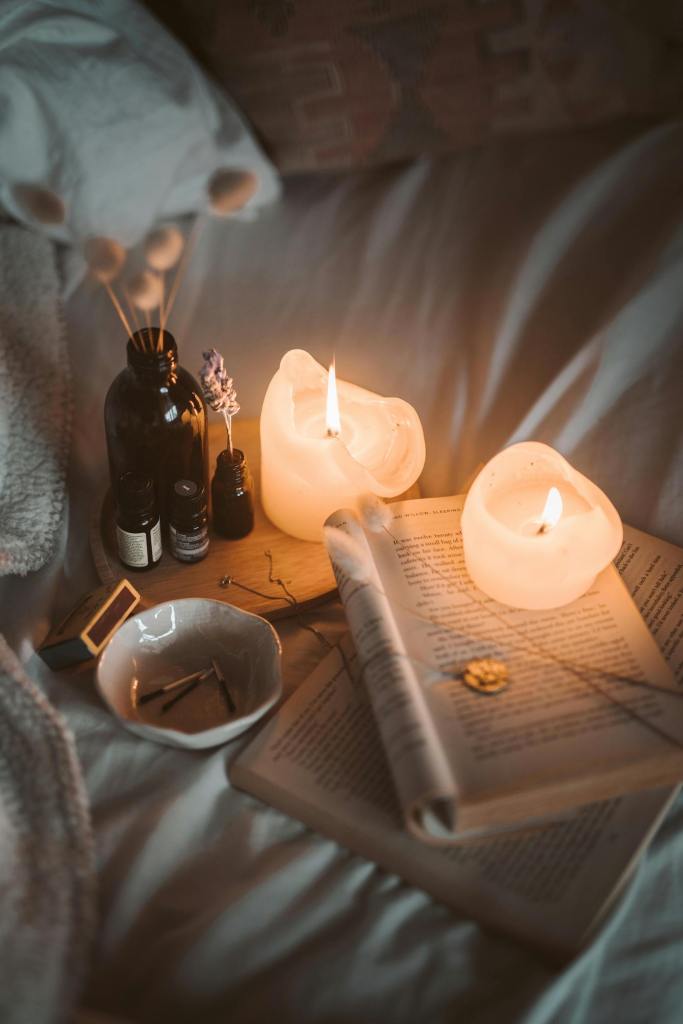
Seeing how procrastination more often comes from fear instead of laziness helps us formulate supportive and fun rituals for starting and getting into the zone.
For me, these involve a “rain dance” of Morning Pages or journalling, lighting a candle or pulling a tarot card. Another trick is setting a 10-minute timer and telling my scaredy-cat self that I can stop if I want when the timer goes off. Usually, I want to keep going because the initial resistance has gone and I reset the timer for one or two hours. Knowing I have this container of minutes to create inside makes me feel safe. It may sound silly, but most magic spells do.
Enthusiasm not discipline
There is a place for discipline, make no mistake. Great artists know how to put in the time, even when they don’t feel it. Schedules are important for working artists. As Annie Dillard says in her brilliant and essential book for writers, The Writing Life, ‘A schedule defends from chaos and whim. It is a net for catching days. It is a scaffolding on which a worker can stand and labour with both hands at sections of time.’
But, as Cameron reminds us, grounding our artistic identity in military discipline is dangerous and only works in the short term. ‘That part of us that creates best is not a driven, disciplined automaton, functioning from willpower, with a booster of pride to back it up.’
Cameron says that over the long haul, it is enthusiasm (from the Greek ‘filled with God’) rather than discipline that will keep the creative fires burning. Enthusiasm is more akin to play than work and, even if we’re getting up early to spend an hour on our novel, it’s more inspiring to think of this as a secret playdate or love affair than as a Spartan hardship.
Recovering from creative U-turns
This week’s reading on creative U-turns and self-sabotage was revelatory for me. I’d never heard this syndrome described before.
‘We usually commit creative hara-kiri either on the eve or in the wake of a first creative victory. The glare of success (a poem, an acting job, a song, a short story, a film or any success) can send the recovering artist scurrying back into the cave of self-defeat.’
Cameron gives numerous examples that will resonate for many:
- the writer who has an agent interested in a script, with just a few changes – the writer never makes the changes
- the actor who’s told to get his headshots together and check back in, but never does so
- the painter invited to be in group show who picks a fight with the gallery owner, or
- a poet who reads to good public reception, then enters a slam contest, loses and never writes again.
Creative U-turns come when we realise we’re on the road to being a productive and healthy artist, but the road has bumps (even small ones), and it feels more comfortable to go back to being blocked or struggling than to navigate the bumps. Success comes with higher expectations of us, and this is uncomfortable.
It’s important to remember that we’re wired to seek comfort, where growth is usually uncomfortable.
Looking back, I can see a few creative U-turns of my own:
- The PhD on Australian cinema that took seven years to write. Assessors praised it highly and said it would make a great book for a general audience, but two publishers knocked it back. Later, a friendly academic publisher at a party asked to see it. I never sent it because it sounded like hard work to look at it again.
- The novella that I finished just in time for the Vogel Prize (for writers under 35). Astonishingly, it didn’t win and, after three publishers rejected it, I put it in a drawer for five years until a supportive writers’ group encouraged me to rework it into my memoir.
- The short stories I wrote and performed last year that didn’t win competitions, so have now been almost forgotten.
The pattern for me is clear. I’m easily discouraged and afraid of judgement and disappointment. A timid first try is often followed by giving up. Friends and supporters are essential in pulling me out of this U-turn. If I hadn’t had a dogged literary agent supporting me through the numerous rejections of my upcoming novel manuscript, I wouldn’t have persisted.
The Artist’s Way tells us that in dealing with creative U-turns, the first thing we must do is extend ourselves sympathy, compassion and patience. Cameron gives us the metaphor of the skittish horse that baulks at jumping a fence, needing to circle the field a few times before coming back and giving it another go.
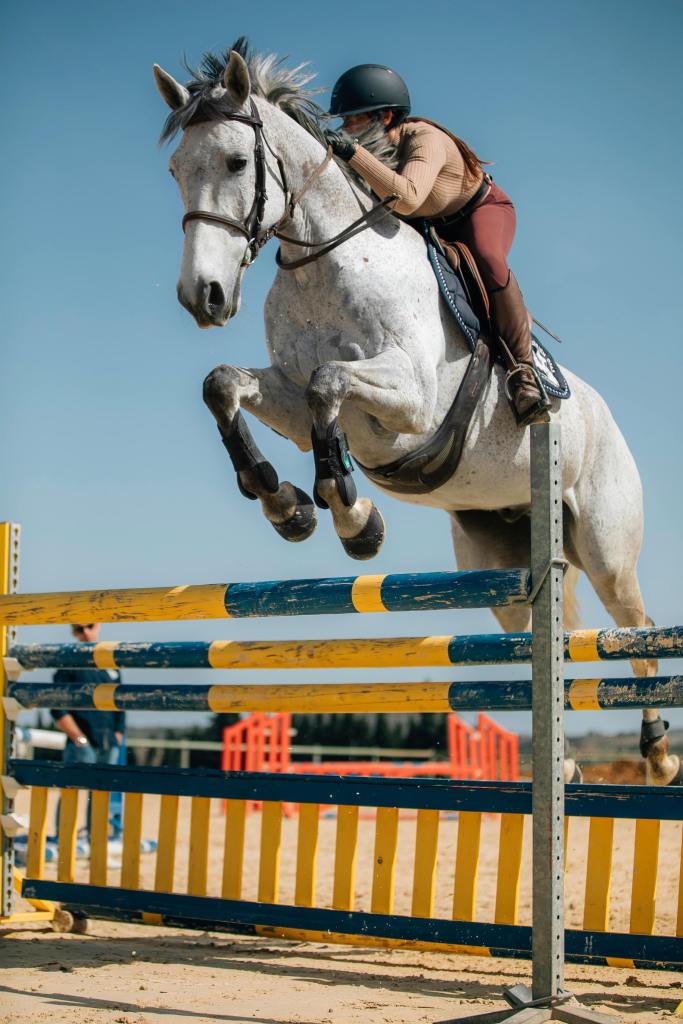
Cameron says that creative U-turns are always born from fear – fear of failure, and of success too. Being successful and making it big means more is expected of us, so that’s not comfortable either.
But once we admit the need for help, help usually arrives. It takes humility to say you need assistance, advice and support – the ego prefers self-sufficiency – but creative U-turns are best met with the question: who can I ask for help?
My journey with ‘The Artist’s Way’ this week
I’m still in the throes of editing to a deadline, but in the spirit of asking for help, I requested an extra week from my publisher. After last week’s hell-week, asking for this extra time felt like an act of self-compassion, and also an act of advocacy for my book. The project needs what it needs to be right.
I’m thinking about creative U-turns and the impulse to baulk at this fence now. Just when it’s time to go out on social media and start talking about the upcoming book, I want to bury myself inside a cave and hide. What am I scared of? Being seen, messing up, losing whatever credibility I imagined I had before. It’s interesting to see these fears and name them for what they are. It feels like a gift to have this chapter of The Artist’s Way appearing before me right now. Cameron would call it synchronicity.
Again, I failed to carve out time for an Artist Date. And, again, I meet this with forgiveness and self-compassion because this week was too full.
Things I did do to nurture my hardworking artist child included: going out to socialise several times, including celebrating a friend’s book launch; going to the gym and listening to music instead of words; and accepting the help offered when my partner booked me in for a massage to deal with the terrible back pain brought on from writing seven days a week.
I feel tired and, to be honest, a little hungover this morning, fighting guilt that I went out last night instead of staying sober. But I can let go of that and take the next small steps of coffee and settling in for an afternoon of editing.
How are you faring, my friends? Are you still on The Artist’s Way? Don’t let the idea of perfection stop you from trying something new.
Creative Community sharing
I’m continually inspired by the sharing of works on our Creative Community Facebook page. This week I enjoyed checking out member Moon Girle on Instagram and watching this video about her solo show A Tra$hy Dreamland, currently showing at Walker Street Gallery in Dandenong until 8 June.
We have a number of textile artists in the group, and I enjoyed checking out this Woven Tapestry of trees and leaves by Rita Duval.
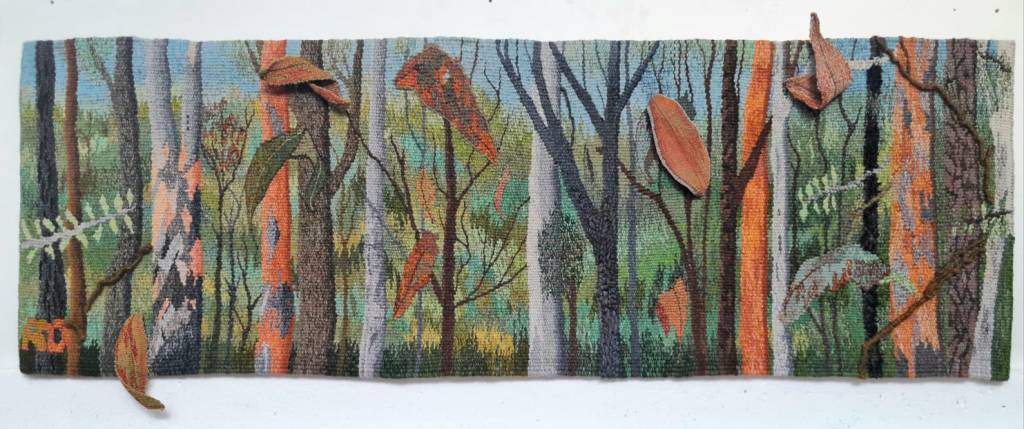
Artworks can be small and beautiful, like this five-centimetre square one, Remotely Beautiful, from community member Anna Christensen.
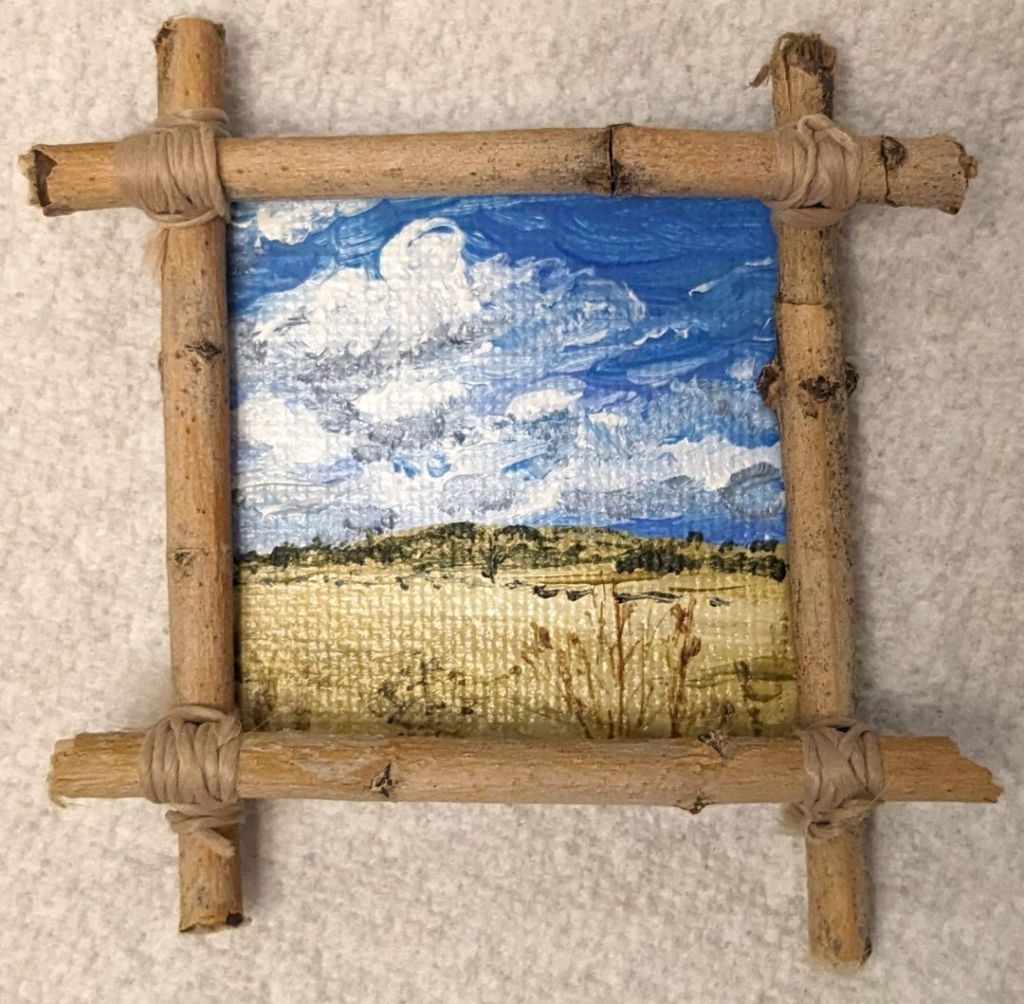
Some Artist Date ideas for the easily exhausted
- Lie on a rug and watch some clouds.
- Collect some autumn leaves and branches and arrange them in a vase.
- Curate a shelf of books that inspire and feed your soul. Arrange them by colour if you want and display some face-out, like a library.
- Put a favourite photo in a frame and display it like an altar.
- Stream a movie from the couch and make it a documentary about an artist or performer.
Other resources
- Revisit collage and other crafts from your childhood
- Check out ArtsHub Events listings with options in all states – activities including art exhibitions, theatre, dance, writing festivals.
- Visit ArtsHub‘s The Artist’s Way Community Facebook group to share your journey, connect with others and ask questions. We’d love to hear from you.

